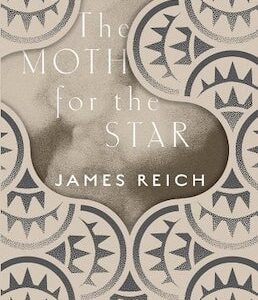Who are you without your memories?
If you developed amnesia, how could you find yourself again? By listening to people who may have known you before? By searching out more objective scraps of your past? If you’re lucky, maybe you’ll find a diary. If you’re not, you might have nothing at all.
And how much of your personality is actively shaped by your memories? Would you experience the world differently without them? How much of you is made up of the past–and what endures without it?
Last To Leave The Room is a doppelgänger horror story. In it, the ambitious Dr. Tamsin Rivers discovers a copy of herself in her own basement. Usually, doppelgänger stories deal with buried pasts or hidden crimes. With this story, though, I decided to focus in on memory, identity, and selfhood. The copy, Prime, is entirely identical to Tamsin in appearance, training, and book knowledge. But Prime has none of Tamsin’s memories. No memories at all, in fact, from before she emerged from the door in Tamsin’s basement. And along with that amnesia, or that fresh blankness, is a completely different personality: sweet, trusting, and ultimately naive. Prime can do advanced calculus, but she doesn’t know what foods count as breakfast.
The only quasi-memory she has is a name: Dr. Tamsin Rivers. Hers, until the Tamsin we’re familiar with takes it from her.
Prime (and by extension, Tamsin) is based on a character I created as a teenager. That character was defined by her memory loss; we joined her story in the After of a great disaster, as she began to reconstruct a new identity and sense of self based on the few clues to her past she had access to. Even twenty years ago, I was fascinated by how identity and sense of self might change based on memory, or lack thereof. There are so many questions, especially when your focus is on the person with amnesia, in the moment, now. Is it always good, morally, ethically, to help them rebuild themself into how somebody else once knew them? Is it even possible? How much of identity is inherent, how much of temperament is physical, and at what point does a loss of memory equate to the creation of a new person? Essentially, when you’ve lost access to your past, does anybody else have a right to the old you?
And as for Prime, how cruel is it to have the one thing she does remember taken from her?
Loss of memory makes us vulnerable. It unmoors us, and can even remove the tools we’ve gained throughout our lives for judging safety and risk. We rely on continuity of experience and memory to make sense out of a chaotic world. Any disruption to that continuity can induce panic. Waking up when you don’t remember having fallen asleep; having too much to drink; zoning out on a long commute home.
I wrote Last To Leave The Room in present tense in an attempt to capture that transitory feeling, of existing only in that moment in the narrative with no promise of a future, and an at times fast-receding glimpse of the past. Prime isn’t the only one having memory lapses as the story unfolds, and Tamsin’s understanding of the last days or weeks in her house shifts as she begins to lose touch with reality. We see Prime’s vulnerability from the outside, but Tamsin’s is much more personal, much more disruptive to the narrative itself.
Narrative, in a book with as tight a point of view as Last To Leave The Room, is artificial memory. It helps us think like, and remember as, the character we’re experiencing the world through. Unreliable narrators are a mainstay of thrillers (though they can be divisive, particularly when the withholding of crucial information seems forced). There’s an unspoken pact between author and reader: nothing on the page should be a lie, or if it is a lie, we should at least suspect we’re being lied to. Otherwise, the rug gets pulled out and we’re left wondering if we’ve wasted our time on set up that was only there to obfuscate.
It’s a balancing act, and Last To Leave The Room dances on that same tightrope, but a little upside down; the unreliability is not in the text, but in Tamsin’s understanding of the text. The narration is her experience in the moment; but her recall of that experience isn’t a given. And as her memory changes, are we watching her fade and decay, or are we watching the creation of something new? Can it be both at the same time? If the narrative appears to misremember, lean into that discomfort, that fear–and keep your eyes open.
***


















